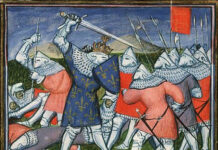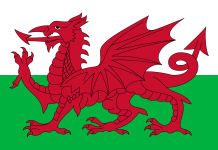Felix Sarda y Salvany
In 1886, during the papacy of Leo XIII, a remarkable book titled Liberalism Is a Sin was written by the Spanish priest Felix Sarda y Salvany (1844 –1916). The main thrust of Sarda’s book was not to indict liberalism in politics so much as liberalism in theology and morals. Having created a storm of controversy, Sarda’s thesis was viciously attacked in a book by another priest, D. de Pazos; whereupon the liberal leaning Bishop of Barcelona ordered both works sent to Rome with the request that Sarda’s book be banned. His effort failed. Jerome Secheri, a Dominican priest and Secretary of the Sacred Congregation of the Index, wrote to the complaining bishop that in Sarda’s book “… not only was nothing found contrary to sound doctrine, but its author merits great praise for his exposition and defense of the sound doctrine therein set forth with solidity, order, and lucidity, and without personal offense to anyone.”
Liberalism Defined
Sarda begins his book with a definition of liberalism and a treatment of its origins. Liberalism in its essence is “the doctrine of the absolute sovereignty of human reason.” This means that even if reason is subject to human error, it is absolute as to its authority. No capitulation to a higher or supernatural Reason can be allowed. It follows that liberalism must trace its origins back to the Protestant Reformation, for that was precisely the moment that full reign was given to the absolute supremacy of private judgment when interpreting the scriptures. Having blasted the traditional and ancient teaching authority of the Church, private judgment was joined with liberty of conscience as the twin ruling principles of Protestantism, which thereafter over the centuries devolved into hundreds of opposing sects that have wreaked havoc throughout Christendom, and which have demonstrated in our own time that the more liberal Christian sects are on a path to extinction.
Martin Luther’s Legacy
After Luther, the dominance of religion in Europe spiraled downward when, lacking any authoritative source of reason other than one’s private judgment, the philosophical school of Rationalism quickly appeared and spread throughout Europe. Protestantism was helpless to beat back the monster it had created, and that monster proceeded to assault every traditional doctrine of religion, both Protestant and Catholic, until Christianity had been more or less successfully divided and conquered. The assault on religion was conducted by the so-called intellectual elites, who proceeded to use all the weapons of human reason they could muster to discredit the reasonableness of religion. Whereas in the Middle Ages atheists were hard to find, by the Enlightenment they had become commonplace. Every reader of history knows that the principal advocates of the French Revolution were also dogged promoters of annihilating religion root and branch.
With remarkable prescience for 1886, Sarda predicted what we have seen come true in our time with mainline liberal Protestantism. “Protestantism is now a dead dog; Liberalism a living lion going about seeking whom he may devour. Its dreadful doctrine is permeating society to the core; it has become the modern political creed and threatens us with a second revolution, to turn the world over once again to paganism.” What Sarda could not foresee was that even some Catholic theologians, scholars, and politicians would, in the distant future, scandalously adopt the principles set forth in the liberal creed and openly begin to rebel against traditional Catholic teachings.
Why Liberalism Is a Sin
Liberalism is a sin, Sarda concludes. “Liberalism strikes at the very foundations of faith. It is heresy radical and universal, because within it are comprehended all heresies …. It repudiates dogma altogether and substitutes opinion. If we were to examine in detail all the doctrines or dogmas which within the range of Liberalism have been denied, we would find every Christian dogma in one way or another rejected – from the dogma of the Incarnation to that of Infallibility.” Yet Liberalism exercises its own dogmatic and infallible authority when it asserts that all true knowledge is subject to the scrutiny of human reason, and knowledge not subject to that scrutiny is not even considered knowledge; it is merely the product of vain imaginings. All the ancient mysteries of religion are thus supposedly refuted. This, Sarda argues, is the unbridled arrogance of liberalism.
Not only is liberalism a sin, Sarda contends, it is a mortal sin. Now mortal sins vary in the gravity of them. A sin against man is a lesser sin than one against God. Liberalism is a sin against God because it is a sin against faith, which constitutes the deadliest of all sins. “Faith is the foundation of the supernatural order … To cut off the branch of a tree will not kill it, but to lay the ax to the trunk or to the roots is fatal to its life.” The tendency of liberalism is to substitute one’s own opinion for the received teaching of dogmatic truth from both Scripture and the Church. Liberalism is dark because it dims our understanding of God’s truth by the pretense that liberalism’s made-up truth is preferable to God’s truth. Invariably liberalism does this with every pretension that it bears the torch of truth, when in fact we know always “the devil presents himself as an angel of light…. Liberalism is the root of heresy, and the tree of evil in whose branches all the harpies of infidelity find ample shelter; it is today the evil of all evils.”
Liberalism in the Church
Next Sarda attacks the thorny question of how liberalism has infected the Catholic Church, which was the probable reason why liberal Catholics attacked Sarda. The liberal Catholic is a contradiction, says Sarda. The liberal Catholic recognizes no dependence of the State upon God, and will likely reason that the State and God have nothing to do with each other. Because the State must not have any formal alliance with religion, even though individuals may have religious freedom, the upper hand is given to atheists in positions of power and governance. The State, controlling public education, “forms the conscience of the youth, not according to the divine law, which acknowledges the will of God, but upon a premeditated and careful ignorance of that law. It is through secular education that liberalism seizes upon the future and breeds atheism in the hearts of the coming generations.” The Catholic who is a Liberal accommodates this phenomenon, or at least does not object to it. He seeks “to please the enemies of the faith itself… he has not the courage to withstand the derision of his cunning foe. To be called intolerant, illiberal, narrow, ultramontane, reactionist, is gall and wormwood to his little soul. Under this epithetical fire he gives way and surrenders his birthright of faith and reason for a mess of Liberal pottage.”
In brief, The liberal Catholic has adopted the position of the Protestant: that the ultimate authority behind truth lies not in the teaching authority of the Church, but in the reasoning authority of the individual, or what Protestants call Private Judgment. It is not the Church that is infallible, but rather each person who judges by the so-called liberty of conscience. As Sarda comments, “It is really not Catholicity, but mere naturalism, a pure rationalism; it is in a word paganism disguised in Catholic forms and using Catholic language.” Thus, the arrogance of the Catholic who is a Liberal is that he has made a god of his own human reason, a god he must worship, a god that is inside the head of a man “deluded by the belief in his own spiritual superiority…. He is in a mental haze – a fog which hides from him the abyss into which his vanity and pride, cunningly played upon by Satan, are invariably drawing him.”
Sarda reasoned that there are two kinds of atheists, those who say they believe that God does not exist, and those who believe that God exists but live as though He did not exist (the latter, called practical atheists, are by far the more numerous). There are also two kinds of liberals: those who lead the liberal movement and know where they are taking it (away from God), and those who follow the liberal movement like sheep because they are deceived by the eloquent rhetoric and shibboleths of the movement’s leaders. Many Catholic who call themselves Liberals fall in this category, hoping to “keep up with the times” and wishing the ancient and outdated Catholic principles would just fade into history. “Such is the conduct of those prudent [Catholic] journalists whom it is difficult to apprehend in the flagrant advocacy of any proposition concretely Liberal, but who nevertheless, in what they say and what they do not say, never cease to labor for the propagation of this cunning heresy. Of all the Liberal reptiles, these are the most venomous.” Sarda’s thesis is well demonstrated even more dramatically today by those Catholic liberals who deny the Real Presence and support abortion rights, same-sex marriage, euthanasia, and every other anti-Catholic abomination. Indeed, how is it even possible that Pope Francis recently had to chastise the Belgian Brothers of Charity for offering euthanasia to psychiatric patients in their fifteen hospitals across Belgium?
Liberal Journalists
Next Sarda rips into Catholic journalists for their liberal propensities: “The editor of a journal purporting to be Catholic must be Catholic, not only in the profession he makes, but in spirit and truth. To assume to be Liberal and then endeavour to appear Catholic is to belie his faith; and although in his own heart he may imagine that he is as Catholic as the Pope (as several Liberals vaunt themselves), there is not the least doubt that his influence on current ideas and the march of events is thrown in favor of the enemy; and, in spite of himself, he becomes a satellite forced to move in the general orbit described by Liberalism…. Most readers know the word [Liberal] in its common usage and class all things Liberal in a lump. When they see an ostensibly Catholic journal practically making common cause with the Liberal creed by sanctioning its name, they are easily led into the dangerous belief that Liberalism has some affinity with their faith, and this once grafted in their minds, they become ready adepts of Rationalism.” For Sarda, it is easy to demonstrate that the term Rationalist is just another word for Freethinker, which only a perverse Catholic would claim as a fit title for himself.
The literature of liberalism Sarda recognized to be everywhere and therefore immensely dangerous to those unaware of its open or subtle presence and power to persuade. But the advantage for the Catholic is that he is not obliged, if he knows the thrust of that literature, to succumb to its logic or to its charms, no matter how forceful and elegant they may be. There is a tendency among fair-minded people, not a vice in itself, to be impartial to works we know to be opposed to our own philosophy, to praise them for certain admirable qualities. Indeed, many Catholic readers and writers will praise out of a perverse desire to please those with whom they disagree, as if this would bring Liberals around to a more positive disposition to Catholic thought. But Sarda asks us to consider whether such impartiality and praise would come from Liberals when you might expect them to find something praiseworthy in the Gospels, for example. Not likely. They are either going to ignore the Gospels entirely or they are going to find something ugly to say about them.
Liberals vs Catholics
Sarda is perfectly aware of the unfair charges brought by Liberals against Catholics, that they are supposedly uncharitable because they oppose liberalism and the values that are dear to Liberals. It is a never-ending charge intended to show that Catholic love has its limits, and that the hatred Catholics have for liberalism has no limits. But Sarda insists this is a wrong-headed ruse intended to make Catholics wonder if indeed they have lost the sense of charity that they have always preached was at the heart of their religion. Sarda is blunt in his answer to such criticism. “If it is shown that in displeasing or offending our neighbor we act for his good, it is evident that we love him, even when opposing or crossing him. The physician cauterizing his patient or cutting off his gangrened limb may nonetheless love him. When we correct the wicked by restraining or punishing them, we do nonetheless love them. This is charity – and perfect charity…. In short, the wolf has always been called the wolf; and in so calling the wolf a wolf, no one has ever believed that wrong was done to the flock and the shepherd.”
According to Sarda, Catholics are vulnerable to the influence of liberalism for several reasons, the main one being that “errors of the intellect follow the corruption of the heart.” Sarda identifies three ways by which Catholics fall into the error of liberalism by the corruption of the heart. (1) They are seduced by the passion for independence and the easy life. It’s an obvious fact that the restraints of Catholicism are more difficult to follow than the permissiveness of liberalism. (2) Catholics “become liberal by the desire for advancement in life.” One only has to look at the formidable obstacles placed before a young man as he seeks to find his proper place in the world. Everywhere he is surrounded by a liberal press, a liberal educational establishment, and liberal celebrities who are models of success. How is he to ignore the examples they set for success? How is he to see any other path to success not corrupted by the errors of liberalism? (3) The attraction to liberalism is often associated with the love of money. Liberalism wants to seduce the Catholic by converting him to liberal ways, and generous endowments are generally forthcoming upon conversion. But this was always the devil’s tactic, as exemplified in Scripture when Satan tempts Jesus with a splendid future: “Falling down adore me, and I will give you all these things” (Matthew 4:9).
Why Liberalism Has Triumphed
Sarda identifies four principal reasons for the triumph of liberalism. (1) The corruption of morals. Anyone who says he is free to think whatever he likes eventually comes to the conclusion he is free to act however he likes. It is a vicious circle: liberalism encourages immorality, and immorality encourages liberalism. (2) The corruption of journalism. The liberal viewpoint dominates the press and any view opposed to the liberal view is suppressed or ignored. As to the mass of mankind, “Liberal doctrines ever pursue them and, like leeches, fasten onto them, never to release their hold.” (3) General ignorance in matters of religion. The separation of Church and State has resulted in deliberate attempts by the liberal sycophants of the State to diminish the importance of religion and the obligations people owe to their God. When religion is not openly mocked or ignored, it is still stifled to every degree possible by the constant drumming in of the liberal message of naturalism (the denial of the supernatural). Every public display of religion must be opposed, and when possible, suppressed. Removing the religion section from newspapers should be a liberal policy. (4) Secular Education. “To gain the child is to secure the man.” Once public education takes over and is controlled by the liberals, it is inevitable that liberal doctrines will seep ever so subtly and constantly into the maturing of every child’s consciousness. “Snatch the soul of the child from the breast of its mother the Church,” says liberalism, “and I will conquer the world.” Be certain, above all, to disallow any mention of God or religion in the public schools, effectively achieved by the Supreme Court of the United States in the 1950s. Incidentally, it is in the 1960s that academic standards begin to radically decline and behaviour problems become epidemic throughout the public school system.
Combating Liberalism
How do we combat liberalism? Sarda offers just three of the many techniques that have come to fruition since his time. (1) By the organization of all good Catholics, be their number great or small. There is, as Aesop easily proved in his “Bundle of Sticks,” strength in numbers. Unity in thought and action among the different associations of Catholics not only gives Catholics strength, it gives them comfort and courage to stand firm against the enemies of Christ. (2) Good journals. Purchase, read, and share with others the best Catholic journals that defend orthodox religion. Only by educating ourselves and others are we able to counter the insidious notions perpetrated in the liberal press. As Pope Leo XIII said, “A Catholic paper is a perpetual mission in every parish.” (3) The Catholic school. This cannot be emphasized too much. If possible, every Catholic parish should have its own school. “Catholic education, amidst the deluge of Liberalism which has overwhelmed the world, is the ark of salvation.”
According to Sarda, liberalism in journalism is the greatest threat to Catholic thought. It is therefore of the utmost importance that Catholics avoid those journals that boast of their liberal identity. To be constantly immersed in such literature is to be forever tempted to adopt, or at least become tolerant of, the corrupt ideas of liberalism. The second class of journals to avoid are those Catholic journals that have openly or clandestinely made common cause with liberal journalism. The liberal Catholic press is really an oxymoron, for such journals that identify themselves as liberal and Catholic are really seeking the opportunity to compromise and ultimately participate in spreading liberal heresies. The good Catholic journals are consistently orthodox. Should they err, they err by accident rather than with a persistent disposition to err as the liberal Catholic journals err, and therefore they should not be condemned as bad. With respect to all Catholic journals, “Those that are bad are not to be accounted good because they happen to slip in something good, and those that are good are not to be accounted bad on account of some accidental failings.”
Can there ever be unity between Catholics and Liberals? Hardly ever. “Liberals are the born enemies of Catholics, and it is only accidentally that both can have interests that are truly common. It is possible, in very rare cases, that a union on the part of Catholics with a liberal group against the radicals may prove useful under given conditions.” What are these conditions? First, the Catholic teaching must not be abandoned or minimized. Second, Catholics must not enroll themselves under a liberal banner. Third, a Catholic alliance with Liberals must not be viewed as “constant and normal.”
Deluded Catholics
Finally, Sarda deals with the paramount illusion of Catholic liberals. They somehow convince themselves that they can draw Liberals into the Catholic camp by seeming conciliatory and welcoming to liberal thought. But this is no way to encourage the many Catholics who will defend without fear their rightful heritage of Christian truth. Nor is it any way to hold on to Catholics who are drifting toward the liberal worldview. It is not the number of Catholics who will combat false philosophy; it is rather the quality of the Catholics who are willing to be truthful and fight without apology for their principles. Without equivocating, Jesus and the Twelve stood alone against the might of the Roman Empire and conquered it by sheer moral force. If that was done once, the hope may surely be entertained that it can be done again on a grander, more universal scale.
A reflection of Joseph Priestly seems to sum up the thesis of Sarda’s book: “According to the apostle Paul, the whole life of every Christian is a warfare. Our enemies are vice and error, and with them we must make neither peace nor truce. Their advocates will not make either peace or truce with us.”












